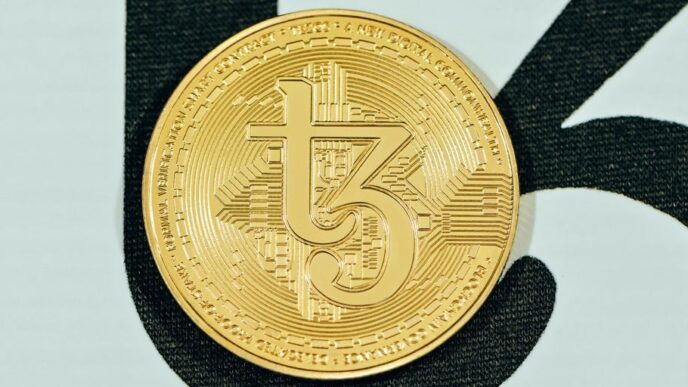Recent developments in Canada’s blockchain industry signal a resurgence of interest and innovation, particularly in sectors like real estate and identity verification. As companies explore the potential of blockchain technology, the landscape is evolving, promising enhanced security and efficiency in various transactions.
Key Takeaways
- Integration of blockchain in real estate transactions is gaining momentum.
- The technology is being recognized for its potential beyond cryptocurrency.
- Industry leaders emphasize the need for standardization and government support.
The Rise of Blockchain in Real Estate
In the real estate sector, blockchain is being integrated into platforms like REALM, developed by the Toronto and Region Real Estate Board (TRREB). This platform, adopted by nearly all real estate boards in Ontario, aims to streamline property transactions by providing a secure, decentralized ledger.
Paul Czan, an Ottawa realtor and president of the Ottawa Real Estate Board, highlights the benefits of technology in enhancing the efficiency of real estate transactions. The integration of blockchain is expected to reduce fraud and improve trust among parties involved in property deals.
Understanding Blockchain Technology
Blockchain is a decentralized digital ledger that securely records transactions across a network of computers. Unlike traditional systems that rely on central authorities, blockchain provides a transparent and verifiable method of confirming exchanges. This technology, initially popularized by cryptocurrencies, is now being recognized for its broader applications.
Challenges and Opportunities
Despite the promising developments, the adoption of blockchain technology in Canada has faced challenges. Patrick Mandic, CEO of Mavennet, notes that the initial momentum slowed due to the need for standardization across different organizations. He emphasizes that aligning various stakeholders is crucial for successful blockchain implementation.
Mandic also points out that foundational work in blockchain has led to the development of decentralized identity standards and verifiable credentials, which are essential for maximizing the technology’s potential.
The Future of Blockchain in Canada
Koleya Karringten, executive director of the Canadian Blockchain Consortium, stresses the importance of understanding blockchain’s benefits beyond cryptocurrency. She believes that compelling use cases, such as smart contracts and identity verification, are generating significant interest in Canada.
However, Karringten also calls for more support and clarity from government entities to foster growth in the blockchain sector. As the industry continues to evolve, the potential for blockchain to transform various sectors remains vast.
Conclusion
The renewed focus on blockchain technology in Canada, particularly in real estate and identity verification, marks a significant shift in how industries can leverage this innovative solution. With ongoing developments and a push for standardization, the future of blockchain in Canada looks promising, paving the way for enhanced security and efficiency in transactions across multiple sectors.














